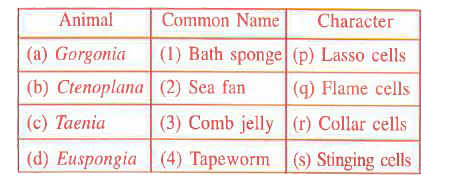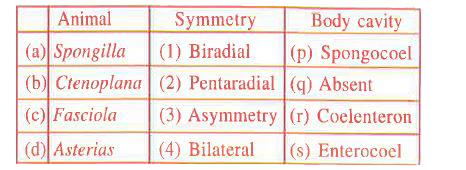Read the given statements and select the correct option.
Assertion : The bridges are declared unsafe after a long use
Reason : Elastic strength of bridges loses with time.
A
If both assertion and reason are true and reason is the correct explanation of assertion.
B
If both assertion and reason are true but reason is not the correct explanation of assertion.
C
If assertion is true but reason is false.
D
If both assertion and reason is false.
Text Solution
The correct Answer is:A
When the huge traffic is passed over bridge, the strain undergoes for a long number of times every day.
When the bridge is used for a long time, the elastic strength is being lost continuously. Because of it the strain in the bridge becomes very large for a particular stress and hence bridge may damage.
|
Topper's Solved these Questions
- ELASTICITYBOOK - CENGAGE PHYSICSCHAPTER - ELASTICITYEXERCISE - CHALLENGING EXERCISE
10 Videos
- DESCRIPTION OF MOTIONBOOK - CENGAGE PHYSICSCHAPTER - DESCRIPTION OF MOTIONEXERCISE - OLYMPIAD AND NTSE LEVEL EXERCISE
10 Videos
- FRICTIONBOOK - CENGAGE PHYSICSCHAPTER - FRICTIONEXERCISE - OLYMPIAD AND NTSE LEVEL EXERCISES (Read the given statements and select the correct option.)
1 Videos
Similar Questions
Knowledge Check
Assertion : The bridges declared unsafe after a long use.
Reason : Elastic strength of bridges losses with timeAIf both assertion and reason are true and the reason is the correct explanation of the assertion.BIf both assertion and reason are true but reason is not the correct explanation of the assertion.CIf assertion is true but reason is fa lse.DIf the assertion and reason both are false.Statement-1: The bridges are declared unsafe after a long use.
Statement-2: Elastic strength of bridges losses with time.AStatement-1, is true, Statement-2 is true, Statement-2 is correct explanation for statement-1BStatement-1 is true, statement-2 is true, statement-2 is NOT a correct explantion for statement-1Cstatement-1 is true, statement-2 is falseDstatement-1 is false statement-2 is trueRead the statements given below and select the correct option
AAtrial naturetic factor (ANF) is responsible for increasing the blood pressure .BGastrin stimulates the secretion of HCl and trypsinogen.CErythropoietin is produced by Juxta - Glomerular cells of the kidney .DCCK acts only on the gall bladder.
Read the following statements and select the correct option :

View SolutionBridges are declared unsafe after a long use'. Why?
View SolutionStatement-1: The bridges are declared unsafe after a long use.
Statement-2: Elastic strength of bridges losses with time.
View SolutionWhy are the bridges declared unsafe after long use ?
View SolutionWhy are the bridge declared unsafe after long use?
View Solution

